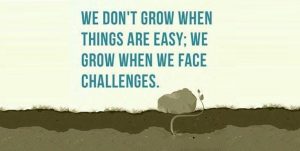I have to say, one of my favorite things about Dartmouth is the D-Plan system. I was never a huge fan of the long summer break that most schools have, and I would always end up getting really bored after the first month and a half. I much prefer Dartmouth's system of having four terms and then a three to five-week long break in between. ...continue reading "5 Ways to Maximize Your Dartmouth Interim Break"
Category: Growth Mindset
Four Steps to a Growth Mindset
In a previous post, we talked about why the Growth Mindset is so important for academic success. Now let’s talk about how we can develop this beneficial mindset. The following guide is based on Stanford University Professor of Psychology Dr. Carol Dweck's research.
Four Steps to Developing a Growth Mindset
Step 1: The first step is to hear your Fixed Mindset “voice” - it’s the voice inside your head that promotes doubt. When you encounter a challenge, the voice may say: “Are you sure you can do it? Maybe you don’t have the talent for it. What if you fail? Then you’ll be a failure. If you don’t try, you can protect yourself and keep your dignity.” The Fixed Mindset voice tries to make you doubt and second-guess yourself. It will try to scare you from even trying.
How the Growth Mindset helped me make a perfect score on the SAT Writing Section
We've talked a lot about the benefits of developing a Growth Mindset. We've also discussed the Four Steps to Adopting a Growth Mindset. Now, I'd like to share a personal anecdote on how the Growth Mindset impacted my academic life.
Understanding the Growth Mindset
The absolute first thing you need to do before you do anything in college is adopt a Growth Mindset. By adopting this mindset, you’ll unlock your ability to improve your academic performance, and you’ll understand why it’s possible to go from C’s in high school to A’s in college.



